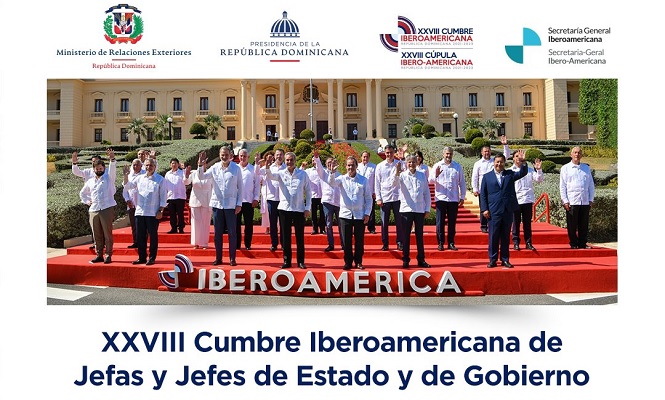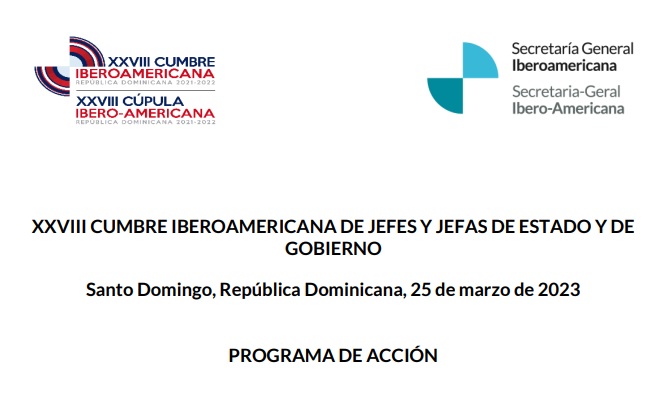
At the XXVIII Ibero-American Summit of Heads of State and Government, held on March 25, 2023 in Santo Domingo (Dominican Republic), leaders from all over Ibero-America showed their support and recognition of the progress made in consolidating the initiatives adopted in the previous edition, which took place in Andorra in 2021.
Among other measures, in the health field, the states reaffirmed their commitment to the Ibero-American Initiative on Congenital Chagas Disease, "No Baby with Chagas Disease" within the framework of the Ibero-American Programs, Initiatives and Projects. The proposal involves maintaining monitoring and technical support for these PIPAs, as well as strengthening the tools created for this purpose, such as the Ibero-American Cooperation Follow-up Platform.
The commitment acquired at the XVI Ibero-American Conference of Ministers of Health emphasizes with a special interest the goal of the elimination of congenital transmission of Chagas disease in the 22 countries that conform the Ibero-American community:
"To continue to promote, with specialized international agencies, civil society organizations and public-private entities of the Ibero-American space, regional actions for the elimination of congenital transmission of Chagas disease, one of the neglected diseases that mainly affects the most vulnerable populations with limited access to health services, especially women of childbearing age, which leads to an increased risk of vertical transmission to children".
For its part, the Ibero-American General Secretariat (SEGIB) maintains under a common strategy the coordination of Ibero-American Networks, among which are some new developments related to health and technical training of health professionals, such as the Ibero-American Network for the Education of Health Technicians (RIETS), the Ibero-American Network of National Health Institutes (RIINS), and the Network of Ibero-American Public Health Training Schools and Centers (RESP-IA). It also proposes to promote and support the creation of the Ibero-American Epidemiological Observatory.
The program includes other initiatives of a general nature that should also have a decisive impact on the fight against Chagas disease and other neglected tropical diseases (NTDs), given that many of the commitments include factors such as environmental sustainability, food security or equal access to basic services.
To this end, it emphasizes the need for economic policy mechanisms and tools to help reduce levels of poverty and social inequality.
In short, through this Program of Action, the Heads of State and Government are planning numerous lines of cooperation in Ibero-America for the coming years. From the horizontality between peoples and with a vocation to achieve the incorporation of other countries and institutions, the community is united around common objectives, languages and culture, which contribute decisively to an acceleration in the achievement of the Sustainable Development Goals (SDGs) set by the World Health Organization for the year 2030.
The Chagas Coalition and DNDi participate in the advisory group of the No Baby with Chagas initiative, which arose from the commitment of the States of the Ibero-American Summit, and whose technical coordination is designated to the Mundo Sano Foundation.


